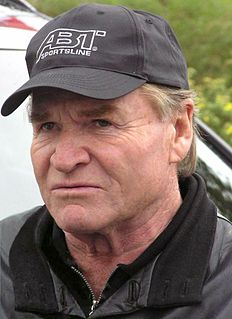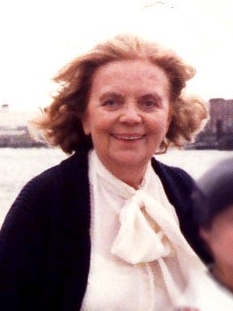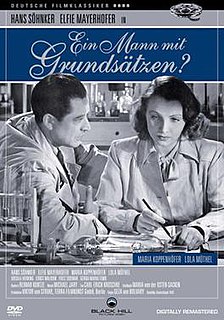Related Research Articles

The Reeperbahn is a street and entertainment district in Hamburg's St. Pauli district, one of the two centres of Hamburg's nightlife and also the city's major red-light district. In German, it is also nicknamed die sündigste Meile and Kiez. The Reeperbahn Festival is among the largest club festivals.

St. Pauli is a quarter of the city of Hamburg belonging to the centrally located Hamburg-Mitte borough. Situated on the right bank of the Elbe river, the nearby Landungsbrücken is a northern part of the port of Hamburg. St. Pauli contains a world-famous red-light district around the iconic Reeperbahn area. As of 2020 the area had 21,902 residents.

Hans Philipp August Albers was a German actor and singer. He was the biggest male movie star in Germany between 1930 and 1960 and one of the most popular German actors of the twentieth century.

Fritz Wepper is a German film and television actor. He is best known for his role as Inspector Harry Klein in the long-running crime series Derrick (1974–1998). Wepper is also remembered for his roles in the films Cabaret (1972) and The Bridge (1959) and as Mayor Wöller in the TV series Um Himmels Willen (2002–2021).

Heidi Bertha Auguste Kabel was a German actress and musician. Most of her stage roles were performed at the Ohnsorg-Theater in Hamburg, many of them in Low German. She became famous in Germany as many of the productions of the Ohnsorg Theater were transmitted on German television.

Karl-Heinz Reincke was a German-born actor, long-based in Vienna.

Herbertstraße is a street in the St. Pauli district of Hamburg, located near the Reeperbahn, which is the main red-light district. It is the only street in the city where it is still possible to find prostitutes in windows as in the famous De Wallen district of Amsterdam. It is reputed to have Hamburg's best-looking and most expensive prostitutes. At its peak about 250 women worked there.

Große Freiheit Nr. 7 is a 1944 German musical drama film directed by Helmut Käutner. It was named after Große Freiheit, a street next to Hamburg's Reeperbahn road in the St. Pauli red light district.
Ralph Arthur Roberts was a German film actor who also directed in the theatre and occasionally in film and wrote plays. From 1928 on, he headed the Berlin Theatre in Behrenstraße.

We Sing Deutsche Hits is a 2011 karaoke game part of the We Sing family of games, developed by French studio Le Cortex. The game features 100% German artists and is set to only be released in the German-speaking territories.

Wolfgang Neuss was a German actor and Kabarett artist. Beginning in the mid-1960s, he also became famous for his political engagement, first for the SPD, then for the extra-parliamentary opposition, APO. He died in 1989 from a longtime cancer.

Nights on the Road is a 1952 West German drama film directed by Rudolf Jugert and starring Hans Albers, Hildegard Knef, Marius Goring and Lucie Mannheim.

A Man With Principles? is a 1943 German comedy film directed by Géza von Bolváry and starring Hans Söhnker, Elfie Mayerhofer, and Sigrid Becker. A young female chemist moves to Hamburg for research where she encounters a handsome, but extremely sexist male colleague. Eventually she manages to conquer his affections and changes his attitude towards woman.
On the Reeperbahn at Half Past Midnight may refer to:
On the Reeperbahn at Half Past Midnight is a 1929 German silent adventure film directed by Fred Stranz and starring Eddie Polo, Lydia Potechina, and Harry Nestor. The film takes its name from the 1912 song of the same name, which refers to the Reeperbahn in Hamburg. The film's sets were designed by the art director Otto Moldenhauer. It was made by the German subsidiary of the Hollywood studio Universal Pictures.

On the Reeperbahn at Half Past Midnight is a 1969 West German drama film directed by Rolf Olsen and Al Adamson and starring Curd Jürgens, Heinz Reincke, and Jutta D'Arcy. It takes its title from a popular 1912 song of the same name about Hamburg, the setting of the film. It is also known by the alternative title Shock Treatment.

On the Reeperbahn at Half Past Midnight is a 1954 West German comedy drama film directed by Wolfgang Liebeneiner and starring Hans Albers, Heinz Rühmann and Fita Benkhoff. The film is set in Hamburg and was one of two 1950s films starring Albers attempting to emulate the success of his 1944 hit Große Freiheit Nr. 7. The film takes its name from the 1912 song of the same name and is not a remake of the 1929 silent film of the same title. A further version was made in 1969 with Curd Jürgens.

Hans-Albers-Platz is a square in St. Pauli, Hamburg, Germany. It is one of the most popular places and tourist attractions within the red light district south of the famous street of Reeperbahn. It is named after the actor and singer Hans Albers.

When Night Falls on the Reeperbahn is a 1967 West German crime film directed by Rolf Olsen and starring Erik Schumann, Fritz Wepper and Konrad Georg. It was shot at the Tempelhof Studios in Berlin and on location around Hamburg. The role played by Konrad Georg was modelled on a similar one he played in the television series Kommissar Freytag.
References
- ↑ Hake p. 228
Bibliography
- Hake, Sabine. Popular Cinema of the Third Reich. University of Texas Press, 2001.
- Phillips, Gene D. Some Like It Wilder: The Life and Controversial Films of Billy Wilder. University Press of Kentucky, 2010